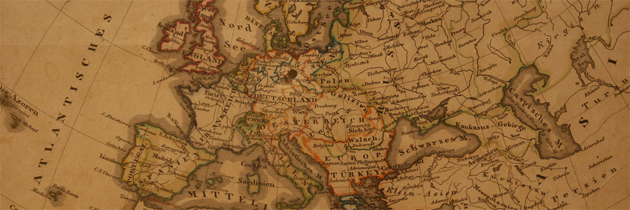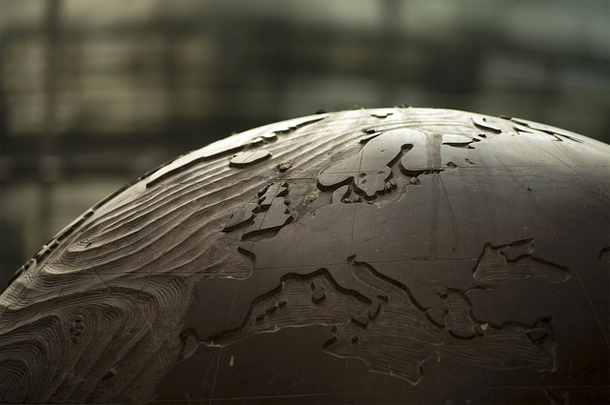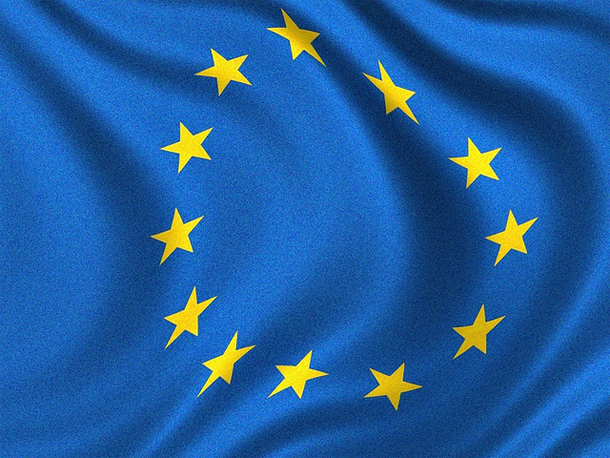
Gaiak
European Union Diplomacy: Exporting values or defending interests?
The classical form of diplomacy that we know from the 19th and 20th centuries has evolved continuously with the international system of sovereign nation states since the 15th century.1 Whereas the continuous globalisation of international politics brings with it a growing necessity for reconciling the differences between political communities that exist in conditions of proximity and interdependence, it is highly doubtful that the forms of diplomatic interaction developed to manage the relations among sovereign nation-states in the 19th and 20th centuries are also adequate for confronting the challenges of the 21st century globalised world.
Here the European Union is a particularly interesting case in point. The EU itself is the institutional expression of a process among European states that after the Second World War were able to put aside their differences and put an end to centuries of enmity. Traditional diplomacy was never able to ensure the peaceful coexistence of the European Peoples, and only the process of European integration has meant that the European states have gradually changed their perceptions of each other from enemies and rivals to friends. In reference to the German philosopher Immanuel Kants writing on the Perpetual Peace, the political dynamics within the EU can therefore be characterised as driven by a Kantian culture of friendship and peace, which, in turn, has led to unprecedented levels of economic wealth.
The EU’s solution to the problem of the peaceful coexistence of different peoples living in close proximity and in conditions of mutual dependence is therefore a model of great interest when analysing the contemporary global problems and the transformation of diplomacy. If the EU itself is based on moving beyond traditional diplomacy adhering to a post-sovereign diplomatic paradigm, how does it itself engage in diplomatic relations with other countries around the globe? And would it be possible to recreate the European solution of peaceful coexistence on a global scale?
The EU itself is the institutional expression of a process among European states that after the Second World War were able to put aside their differences and put an end to centuries of enmity.
Photo: CC BY - C. G. P. Grey
European Union diplomacy is organized in a network characterised by the continuing centrality of state actors and diffuse structures of legitimacy and political authority, but also by the increasingly common decision-making and implementation process.
Not surprisingly, the ideological foundation of EU diplomacy reflects the EU’s own historical experiences. The EU basically wants to mould the world in its image. The EU wants, firstly, to instigate an internal transformation in third countries so that these come to resemble EU member states. Secondly, the EU objective is to transform the anarchic international system into an international community, not based on existing diplomatic arrangements, but on the lifting up of the principal characteristic of the European model of integration to the global level. The EU sees major political changes to be achieved only through changing the basic social structures of the international system. EU diplomacy thus seeks to make other states adhere to EU values, both with respect to the organization of a state (democracy, rights human and good governance) and with regard to diplomacy (multilateralism, interventions in the internal affairs of other states, the institutionalisation and legalisation of international interchange).
To achieve these transformative objectives, the European Union uses the specific practices of classical state diplomacy, such as the opening of permanent diplomatic missions and with respect to the symbolic dimensions of diplomatic rank and protocol. Nevertheless, the effect of these traditional diplomatic practices is not only the preservation of classical state diplomacy, but also its transformation. The EU has institutionalised its diplomatic relationships in formal agreements with almost all third states. The agreements regulate not only the political content of the relationships, but also the diplomatic interaction, through the establishment of regular meetings at different hierarchical levels, from Heads of State or Government to technical officers, and in some cases also common institutions. At the same time, the EU supports regional integration in other parts of the world. The main impact of EU diplomacy with respect to its transformative objectives is therefore of a structural nature and in the long-term perspective.
This is not the only impact of EU diplomacy, though. By interacting in a diplomatic system, the EU is necessarily forced to act within the existing diplomatic system. Due to the on-going evolution of the EU itself, where the Member States transfer more and more competences to the Union, this also means that the UE is tasked with defending common geopolitical and economic interests on a day-to-day basis. But can EU diplomacy simultaneously instigate fundamental long-term changes in the diplomatic system and defend short-term interests within that very system? Can the EU create a post-sovereign world characterised by a Kantian culture of friendship, if it at the same time treat others as rivals and potential enemies in the classical diplomatic tradition?
The EU’s solution to the problem of the peaceful coexistence of different peoples living in close proximity and in conditions of mutual dependence is therefore a model of great interest when analysing the contemporary global problems and the transformation of diplomacy.
Photo: CC BY - YanniKouts
The conclusion here is that most probably it cannot. At some point, the EU must choose if it wants to be simply another “player” in international politics that defends its interests and seeks to maximise its own power to the detriment of others, or whether it wants to change the world. EU diplomacy is trapped between a utopian long-term objective of lifting up the EU model of coexistence to the global level, and a short term objective of defending EU economic and geopolitical interests in the international system. These objectives are by nature antagonistic, based as they are on different paradigms of international interaction and here, institutional innovation does not help.
The new European External Action Service, created by the Lisbon Treaty in 2010, was designed to increase EU coherence and visibility on the international stage, but it does not solve the underlying problem of conflicting objectives. It possibly even makes things worse. On one hand, the EU will not able to provoke fundamental long-term changes in the forms of diplomatic interaction among states because it increasingly behaves like a traditional state defending its own narrow interests. On the other hand, the EU will not be able to defend common European interests effectively in the international system of states, precisely because it is NOT a sovereign nation-state, but a post-sovereign network of 27 quite different states. Although the European External Action Service might in the future increase political coherence and improve the diplomatic representation of the EU and thereby allow it to win some political ‘battles’ in the short term, the tragedy is, that these very tactical victories will probably mean a strategic defeat: that the EU loses the ‘war’ in the long term, because it will not be able export its own historical experience of peaceful coexistence. In the pursuit of short-term and temporary gains through classical diplomacy, the EU will have disregarded the last 60 years of European experiences of how peace and prosperity is achieved in the long term by engaging in a post-sovereign diplomatic paradigm.
In conclusion, what in principle looks like an interesting new paradigm of diplomacy with the potential to transform existing patterns of diplomatic interaction, and doing so without incurring in the violence that often characterises such utopian projects, actually ends up as a middle way that does not seem capable of providing the solutions to the problems of the 21st century globalised world.
1By Dr. Steffen Bay Rasmussen. The article summarises one of the principal arguments of his doctoral thesis defended at the University of the Basque Country (UPV/EHU) in 2011, entitled: “La diplomacia de la Unión Europea: un desequilibrio inestable entre la utopía antidiplomática y el tradicionalismo westfaliano” (available in the University Library). The research project was financed by the Basque Government, via its “Programme for the Training of Research Staff”.



